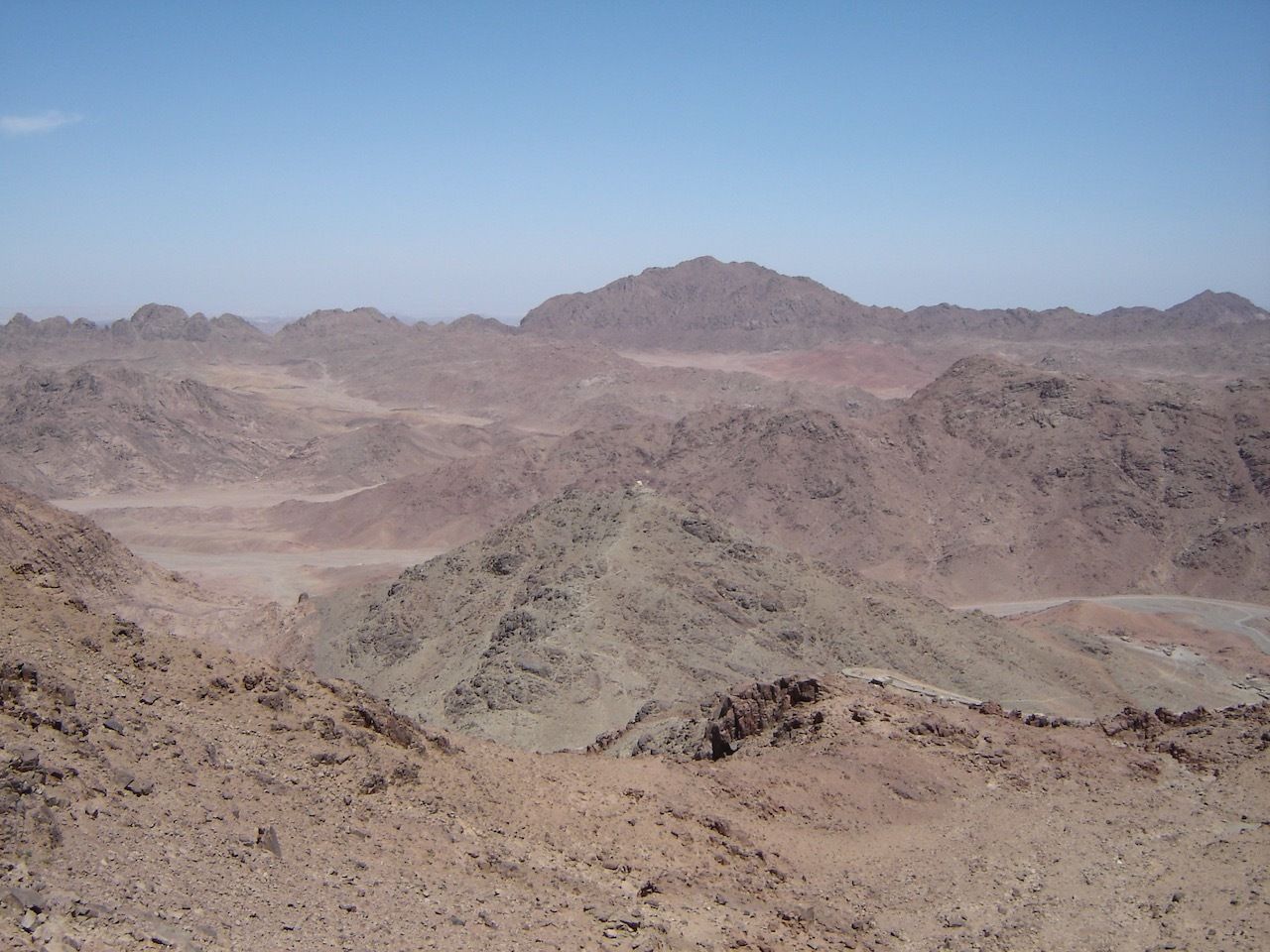- This is the Day
- Posts
- March 27
March 27
Saint John of Egypt

View from Mount Sinai, 2006. Own photo.
Today marks the Battle of Horseshoe Bend in Alabama in 1814, in which U.S. forces led by Andrew Jackson killed 800 Muskogee (Creek) warriors who were trying to resist assimilation and territorial expansion by the United States. After Jackson became president, his hatred of Native Americans would lead him to deport even his Cherokee allies who aided him in the war.
Today also marks the date that another white supremecist president, Andrew Johnson, vetoed the Civil Rights Act of 1866, which defined former enslaved persons as citizens of the United States. Congress would override his veto and the Act would be passed the next month.
Today is the feast day of John of Egypt, who died in 394. He was one of the “Desert Mothers and Fathers” who lived in Egypt and set a precedent for solitary monastics who devoted themselves to prayer. He was also an “anchorite,” someone who walls themselves into a room next to a church (or in his case, a cave), and receives food and visitors at a small open window. The irony of this practice is that anchorite “hermits” often became the center of a community.
Reflection:
We are living through another white supremacist presidential administration, one that shows little but contempt for asylum-seekers and refugees. Yet out faith story, from Exodus through the New Testament and the examples of the early church Desert Mothers and Fathers teach us solidarity with exiles and refugees. Early church hermits went to the desert in imitation of Jesus’s forty days in the wilderness.
While my own theology rejects such extreme asceticism, I do find inspiration in anchorites as a community practice. One person is set aside so that a church can literally “pray without ceasing.” It’s a stark contrast from our society, which measures human worth by production and consumption.
Bishop Steven Charleston writes:
The pathos of the Garden vision quest is not that Jesus is going to his death. It is that Jesus is going into exile. Isolation is what Jesus faces as the Native Messiah, a fate far worse than death for any Native person. The fearful thought of permanent exile is the cup from which Jesus is asked to drink. As we will see in the next chapter, Jesus will become an exile to include every life in his dance. To reach beyond the margins of creation, however, means being cut off from creation. The courage of Jesus is not in facing death, but in facing what it means to be alone.
Roberta Bondi, scholar of the early Desert Mothers and Fathers, writes:
Humility was an offensive characteristic for a God, in the eyes of early non-Christians. How could Christians worship a God who deliberately chose to share in human birth with all its mess and vulnerability and limitation, as well as a shameful death? How can we now worship a God to whom all the unimportant little details of our lives actually matter? How can we respect a God who takes us more seriously than we take ourselves, and yet is not impressed with all our accomplishments? Who loves us equally well, whether we succeed or fail? How could it really be that God simply disregards not only our education, our tastes, our industry, our niceness, our worthiness in order to love us? God's greatness we can begin to approach. The sheer humility of God's love is incomprehensible.
Prayer: God, we fear being alone. We fear being in community. Disciple us in solidarity with all exiles so that we can understand your humility.